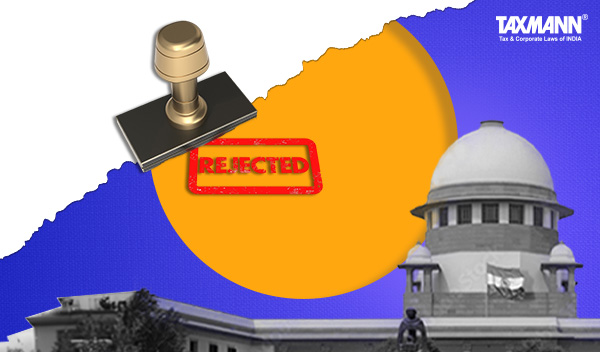Order Rejecting the Application to Condone the Delay to Be Set Aside as It Was Passed Without Providing Any Reasons | HC
- Blog|News|GST & Customs|
- 2 Min Read
- By Taxmann
- |
- Last Updated on 18 December, 2024

Case Details: Paxter Lifescience v. Commissioner of Central GST and Central Excise - [2024] 169 taxmann.com 250 (Gujarat)
Judiciary and Counsel Details
- Bhargav D. Karia & Mrs Mauna M. Bhatt, JJ.
-
Hardik V. Vora, for the Petitioner.
-
C.B. Gupta, for the Respondent.
Facts of the Case
The assessee purchased goods for export under a Letter of Undertaking (LUT), which allowed export without the payment of Integrated Goods and Services Tax. Due to the unavailability of transportation services, the assessee could not export goods within the stipulated period of 90 days. The assessee filed an application to condone the delay in export based on Circular No. 37/11/2018-GST. However, the application for extension was rejected by revenue without providing any substantial reasons, merely stating that the extension of the period beyond 90 days was disallowed under the GST Act and Rules. It filed writ petition before the High Court.
High Court Held
The Gujarat High Court noted that it was a well-settled legal position that not only administrative but also judicial orders must be supported by clear, written reasons. Thus, while deciding an issue, the court or quasi-judicial or administrative authority is bound to give reasons for its conclusion. It is the duty and obligation on the part of the court to record reasons while disposing of the case. The reason is the heartbeat of every conclusion. It introduces clarity into an order, and without the same, the order becomes lifeless. The absence of reasons renders an order indefensible, particularly when the order is subject to further challenge before a higher forum. The person who is adversely affected must know why his application has been rejected. Thus, the order rejecting the application to condone the delay, which was bereft of any reason, was to be quashed and set aside, and the matter was to be remanded back to the revenue.
List of Cases Reviewed
- Sant Lal Gupta v. Modern Coop. Group Housing Society Ltd. [(2010) 13 SCC 336
- S.N. Mukherjee v. Union of India [(1990) 4 SCC 594]
- Union of India v. Ibrahim Uddin [(2012) 8 SCC 148] (Para 9) followed.
List of Cases Referred to
- Sant Lal Gupta v. Modern Coop. Group Housing Society Ltd. (2010) 13 SCC 336 (para 8).
Disclaimer: The content/information published on the website is only for general information of the user and shall not be construed as legal advice. While the Taxmann has exercised reasonable efforts to ensure the veracity of information/content published, Taxmann shall be under no liability in any manner whatsoever for incorrect information, if any.

Taxmann Publications has a dedicated in-house Research & Editorial Team. This team consists of a team of Chartered Accountants, Company Secretaries, and Lawyers. This team works under the guidance and supervision of editor-in-chief Mr Rakesh Bhargava.
The Research and Editorial Team is responsible for developing reliable and accurate content for the readers. The team follows the six-sigma approach to achieve the benchmark of zero error in its publications and research platforms. The team ensures that the following publication guidelines are thoroughly followed while developing the content:
- The statutory material is obtained only from the authorized and reliable sources
- All the latest developments in the judicial and legislative fields are covered
- Prepare the analytical write-ups on current, controversial, and important issues to help the readers to understand the concept and its implications
- Every content published by Taxmann is complete, accurate and lucid
- All evidence-based statements are supported with proper reference to Section, Circular No., Notification No. or citations
- The golden rules of grammar, style and consistency are thoroughly followed
- Font and size that’s easy to read and remain consistent across all imprint and digital publications are applied



 CA | CS | CMA
CA | CS | CMA
